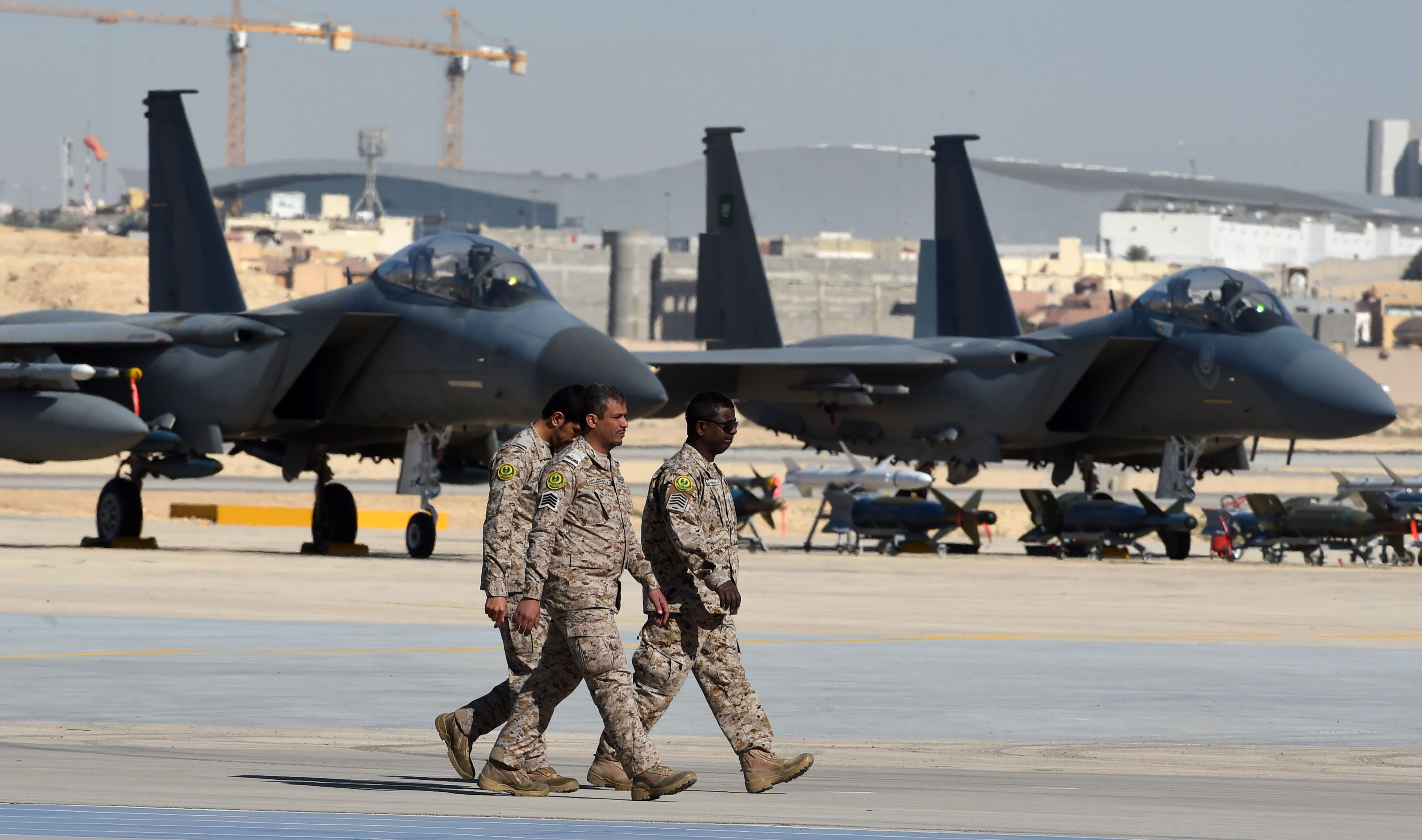Operation Desert Storm was a defining moment in U.S.-Saudi security relations. However, it happened more than three decades ago — in a very different era in U.S. foreign policy and a very different regional and international context. U.S. interests in the region have changed considerably since, and so have the threats to those interests. Moreover, if its withdrawal from Afghanistan in August 2021 is any indication, America’s willingness to go to war again in the Middle East has eroded.
The status quo in U.S.-Saudi security ties is presently unsustainable and a key source of tension. Yet the chances of upgrading the relationship to a formal alliance are remote. So what is politically and strategically feasible?
Join us for a panel discussion that will explore the future of the U.S.-Saudi relationship and launch a new report by Defense and Security Program Director and Senior Fellow Bilal Y. Saab, entitled After Oil-for-Security: A Blueprint for Resetting U.S.-Saudi Security Relations.
Speakers
Bilal Y. Saab
Senior Fellow and Founding Director of the Defense and Security Program, Middle East Institute
Martin Indyk
Lowy Distinguished Fellow in U.S.-Middle East Diplomacy, Council on Foreign Relations
F. Gregory Gause III
Professor and John H. Lindsay ‘44 Chair, Bush School of Government and Public Service, Texas A&M University
Aya Batrawy, moderator
International Correspondent, NPR
Detailed Speaker Biographies
Bilal Y. Saab
Bilal Y. Saab is a political-military analyst on the Middle East and U.S. policy toward the region. He specializes in the Levant and the Gulf and focuses on security cooperation between the United States and its regional partners and national security and defense processes in Arab partner countries. At the Middle East Institute (MEI), Saab is currently senior fellow and director of the Defense and Security Program. In addition, he is an adjunct assistant professor at Georgetown University’s Security Studies Program in the School of Foreign Service. Prior to MEI, Saab served as Senior Advisor for Security Cooperation (SC) in the Pentagon’s Office of the Under Secretary of Defense for Policy, with oversight responsibilities for U.S. Central Command (CENTCOM). In his capacity as the Department of Defense’s lead on security cooperation in the broader Middle East, Saab supported the Under Secretary of Defense for Policy’s responsibility for SC oversight by leading prioritization and strategic integration of SC resources and activities for the USCENTCOM Area of Responsibility.
Martin S. Indyk
Martin S. Indyk is the Lowy distinguished fellow in U.S.-Middle East diplomacy at the Council on Foreign Relations in New York. Previously, he was the executive vice president of the Brookings Institution. Indyk served as President Barack Obama's special envoy for the Israeli-Palestinian negotiations from July 2013 to June 2014. Before his time as special envoy, he was vice president and director of the Foreign Policy program and the founding director of the Center for Middle East Policy at Brookings.
F. Gregory Gause III
Dr. F. Gregory Gause, III, joined the Bush School in 2014 as the head of the Department of International Affairs, serving until 2022 in that capacity, and holds the John H. Lindsey ’44 Chair. He was previously at the University of Vermont, where he was professor of political science from 1995 to 2014 and, from 2010 to 2013, chair of its Department of Political Science. He served as director of the University's Middle East Studies Program from 1998 to 2008. He was a Non-Resident Senior Fellow at the Brookings Doha Center from 2012-2015. Dr. Gause received his PhD in political science from Harvard University (1987) and studied Arabic at the American University in Cairo (1982-83) and at Middlebury College (1984). Dr. Gause’s research focuses on the international politics of the Middle East, with a particular interest in the Arabian Peninsula and the Persian Gulf.
Aya Batraway
Aya Batraway is NPR’s international correspondent heading the organization’s new Gulf bureau, as well as covering Egypt. Previously, she was with The Associated Press, helming coverage of Saudi Arabia for more than a decade. She also worked as an editor and as AP’s global economy correspondent, reporting on the impact of climate change, inflation, high oil prices and Russia’s war in Ukraine on people around the world. She covered the Arab Spring and its aftermath in Egypt. She has researched and reported from across the region, including the Gaza Strip, Jerusalem, Syria, Qatar, the UAE, Kashmir and Washington D.C. She also taught journalism at the American University in Cairo.
FAYEZ NURELDINE/AFP via Getty Images












